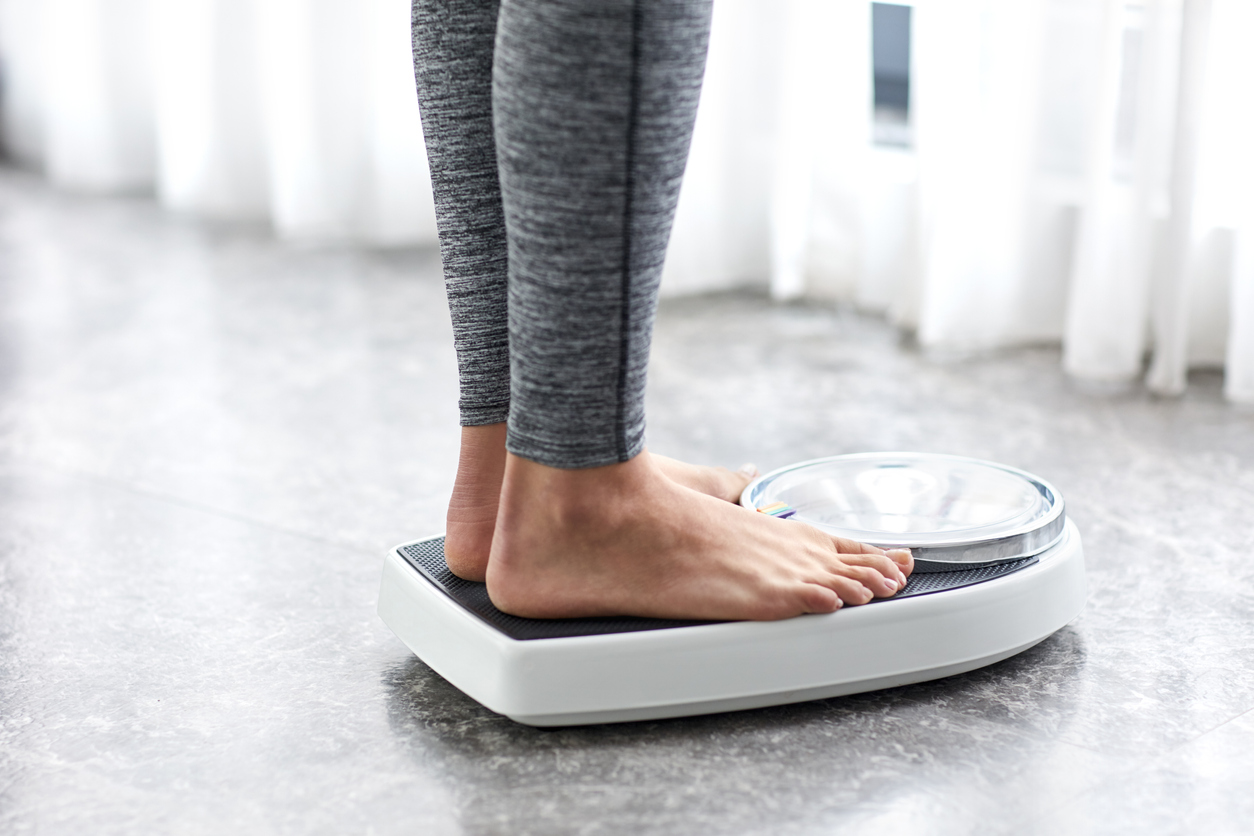8 Instant Health Benefits of Quitting Drinking, According to Experts
Giving up alcohol can boost your well-being in some surprising ways.

Imagine there was a beverage you could drink that would improve your mood, reduce your risk of numerous diseases—including different types of cancers—and potentially help prevent accidents, injuries, and even lost days of work due to plain old bugs like the common cold. Oh, and it could help you lose weight, too. Cheers!
Now imagine that there's a drink that does the opposite—spiking your risk of cognitive decline, making you more vulnerable to illnesses ranging from cancer to colds, and increasing your chance of death or injury from car crashes and other types of accidents. You'd want to steer clear of that beverage, right?
It turns out there is a drink that can potentially cause all types of illness and injury, and millions of us drink it every single day. Even in moderation, drinking alcohol can seriously affect your well-being. And while it can be difficult to stop drinking completely—or even cut back—being aware of the many potential health benefits could help motivate you to change your habits. Read on to find out what experts say you can look forward to if you swap your next happy hour cocktail for a mocktail.
READ THIS NEXT: If This Happens When You Drink Alcohol, It Might Be Time to Stop.
1
Improved mood

Having a drink may initially get you "buzzed," but don't be fooled by that first flush of feeling good. "Alcohol is a depressant, which means it can affect the functioning of the brain and make negative self-talk, anxiety, and feelings of hopelessness worse," says GinaMarie Guarino, LMHC and the founder of PsychPoint. "Quitting drinking helps your brain stay more regulated, and prevents significant emotional consequences that alcohol use can cause."
2
Better sleep

Even if you fall into bed exhausted and pass out quickly after an evening of drinking, your deep sleep won't last long. That's because alcohol actually has a negative effect on your sleep habits.
Charlene Gamaldo, MD, associate professor of neurology, pulmonary, and critical medicine and director of the Neuro-Sleep Division at Johns Hopkins Hospital, explained to Everyday Health the three different ways alcohol can keep you up: "First, alcohol is a diuretic, so your body works hard to metabolize it and creates large volumes of urine to help you get the alcohol out of your body." This can result in sleep-disrupting trips to the bathroom. "Second, you'll have the rebound waking as your body bounces back from the depressant effects of the alcohol," she warned. "Also, too much alcohol can weaken airway muscles, triggering—or worsening—sleep disturbances like sleep apnea or heavy snoring."
3
Decreased risk of heart disease

It's long been believed that moderate drinking is good for your heart, but more recent studies have shown that any amount of alcohol consumption can increase the risk of heart disease. According to the World Heart Federation, "Studies have shown that even small amounts of alcohol can increase a person's risk of cardiovascular disease, including coronary disease, stroke, heart failure, hypertensive heart disease, cardiomyopathy, atrial fibrillation, and aneurysm."
As for past studies about the benefits to your heart health of drinking alcohol? "To date, no reliable correlation has been found between moderate alcohol consumption and a lower risk of heart disease," they say.
4
Healthier liver

The body's largest internal organ has a lot of functions—over 500! So it's crucial to do whatever you can to keep it healthy (and watch for signs of liver damage). Long-term alcohol abuse can lead to swelling, a fatty liver, or cirrhosis (scarring that prevents the liver from functioning), according to the experts at Mount Sinai. Some types of liver damage are, unfortunately, irreversible—but in other cases, the liver "can repair itself and even regenerate," according to WebMD.
For more health news sent directly to your inbox, sign up for our daily newsletter.
5
Weight loss

It's not just the calories in alcohol that help move the needle upwards on your scale—although make no mistake, it's got plenty of them. One glass of wine, for example, is equal in calories to a square of chocolate. The food choices you make when you're drinking are a contributing factor, as well. A 2015 study showed that even moderate drinking increased not only the intake and enjoyment of high-fat savory foods, but the desire for them, as well.
As Linzy Ziegelbaum, MS, RD, CDN, and the founder of LNZ Nutrition explained to Women's Health, alcohol consumption can lead to "dehydration and depletion of certain necessary vitamins and minerals as a result, as well as sluggishness." Add that sluggishness to the aforementioned sleeplessness, and you're likely to go overboard on the high-calorie snacks.
6
Stronger immune system

While concerns about our immune systems have made headlines over the past two years due to the COVID pandemic, keeping illness at bay should always be a priority. And our immune systems don't just battle viruses, bacteria, and toxins. "The immune system is critical in fighting cancer," says Stephen Lynch, MD and Vice Chief of Staff at the Cancer Treatment Centers of America (CTCA) in Phoenix. "We have an immune system that is designed to recognize native and non-native cells that can harm us."
However, alcohol can have a negative effect on your immunity. "If you drink every day, or almost every day, you might notice that you catch colds, flu, or other illnesses more frequently than people who don't drink," reports the Cleveland Clinic. "This is because alcohol can weaken the immune system and make the body more susceptible to infections."
7
Lower blood pressure

There's a reason high blood pressure (also called hypertension) is known as the "silent killer." The symptoms can be subtle or non-existent; many people don't even know that they have the condition, or that they need to take steps to lower their blood pressure. Hypertension can lead to a host of serious problems which include damage to the heart, eyes, kidneys, brain, blood vessels, kidneys, vision, and even cognitive abilities—as well as increase the risk of esophageal, gastric and colorectal cancer.
A study published in the National Library of Medicine notes "a close association between heavy alcohol consumption and hypertension," but states that "hypertension is rapidly reversible in the majority of heavy drinkers after the withdrawal of alcohol consumption."
8
Lowered risk of certain cancers

While many people associate alcohol abuse with more commonly known conditions such as liver disease, alcohol consumption has actually been classified by the National Toxicology Program of the US Department of Health and Human Services as a human carcinogen. According to the National Cancer Institute (NCI), "clear patterns have emerged between alcohol consumption and the development of" head and neck cancer, esophageal cancer, liver cancer, breast cancer, and colorectal cancer.
Quitting drinking may not instantly reduce your risk of these cancers, but over time, it can help. "[Studies] have found that stopping alcohol consumption is not associated with immediate reductions in cancer risk," says the NCI. And while they warn that "it may take years for the risks of cancer to return to those of never drinkers," the sooner you stop drinking, the sooner your risk will start to go down.
READ THIS NEXT: The Real Reason Kelly Ripa Stopped Drinking Alcohol.





















